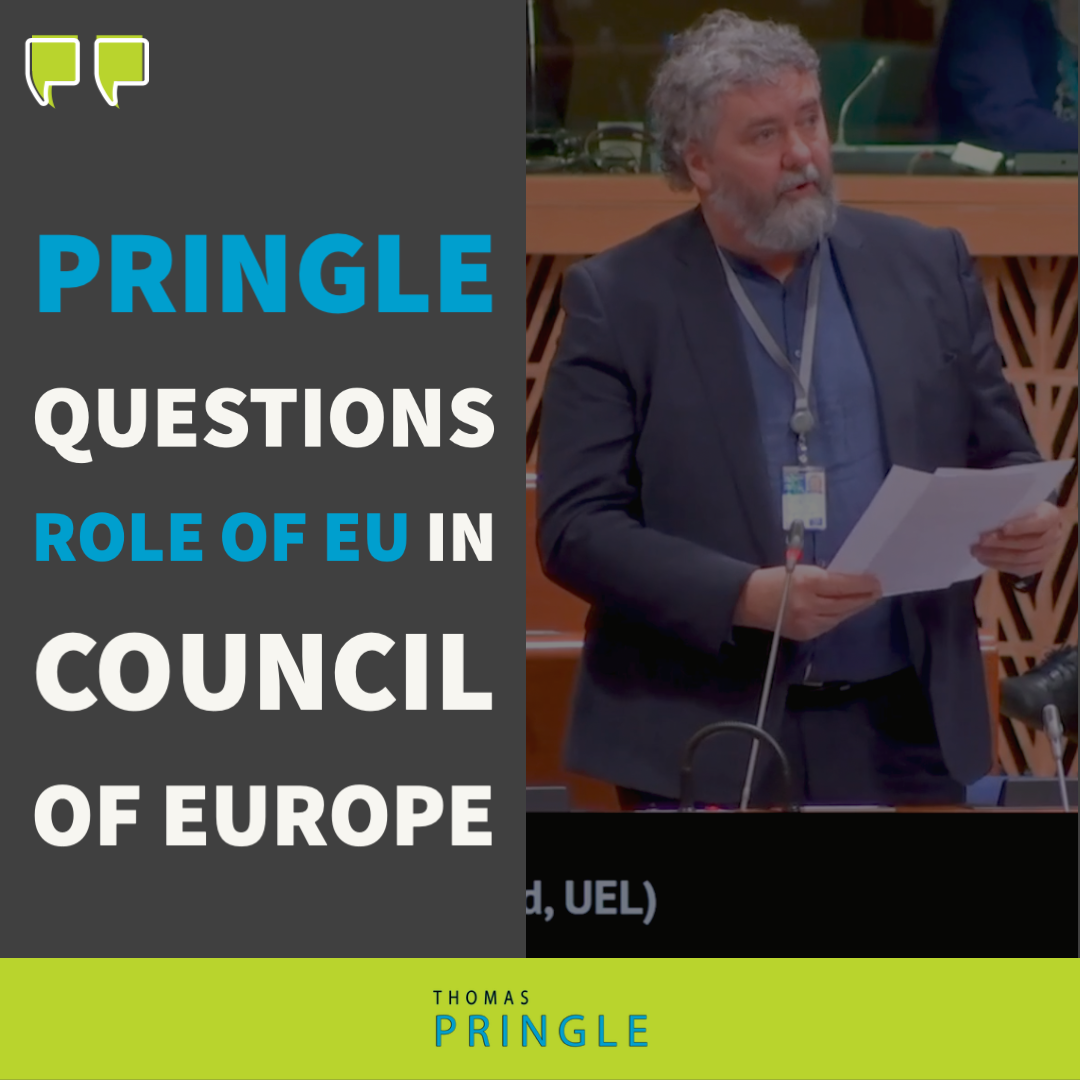- Pringle: We need a policy that recognises the importance of inshore fishing
- Pringle: Disabled people and carers face crisis of State neglect
- Pringle: Failed FF/FG housing policies forcing people to put their lives on hold
- Pringle welcomes Donegal council motion on Occupied Territories Bill: ‘We cannot stand by in the face of genocide’
Pringle questions role of EU in Council of Europe
- Updated: 25th January 2023

Independent TD for Donegal, Thomas Pringle, has questioned the role of the EU in the Council of Europe, given that all EU member states are already members of the council.
Addressing the Council of Europe on Tuesday, Deputy Pringle said: “I am not sure about the increased engagement with the European Union that the Irish presidency is so enamoured with, which would be my only point of difference with the review of the Irish presidency. When all member states of the European Union are already members of the Council of Europe, why is it necessary to have the EU as a member itself?
“Why should the Council of Europe have a role in the enlargement process of the EU? Surely it will not be a requirement for membership of the EU for membership of the Council of Europe or vice versa. That would undermine the role that this organisation has had over the years, and it would be a retrograde step in my view that would undermine the role and responsibility of this organisation,” he said.
The deputy addressed the council’s winter plenary session in Strasbourg on Tuesday, during a debate on the Reykjavik Summit of the Council of Europe: United around values in the face of extraordinary challenges.
Deputy Pringle said: “The Reykjavik Summit of the Council of Europe is without doubt a success of the Irish presidency of the council and I would like to pay tribute to the Icelandic presidency as well for the hosting of the conference.
“I would like to take this opportunity to congratulate and pay tribute to the leader of the Irish delegation, Fiona O’Loughlin, on her work in making this event happen as well. This is probably the only time I will pay tribute to a member of Fianna Fáil during a speech in this House, so that is a first.”
“It is important as to the renewal of the Council of Europe that the summit is a success, so we have a vested interest in how it goes,” he said.
The deputy said: “It is important that we recommit to the core values of the Council of Europe and remind participants of the binding nature particularly of the judgements of the European Court of Human Rights. It is by respecting the court’s rulings that member states show how they respect the rights of citizens across the Council of Europe area.
“Very often governments may not like the judgements, but they are a recognition and protection for its citizens of human rights,” he said.
Deputy Pringle also repeated his commitment to the importance of Irish neutrality.
The deputy said: “Unfortunately, we are starting to see in Ireland the undermining of our traditional role in the world by the commencement of working under an EU banner as more and more our government gives prominence to Europe on foreign affairs.
“How does that assist us when we will align with the view of Germany and France on foreign affairs and the respected role that Ireland has had as an unaligned, neutral, former colony on the world stage will be undermined?
“We can work through the Council of Europe and assert the role of neutral, unaligned countries as being a valid and important role. That is the role that we should choose and work towards within the Council of Europe,” he said.
The Reykjavik summit, the fourth in the council’s history, will be held in Reykjavik in May.



